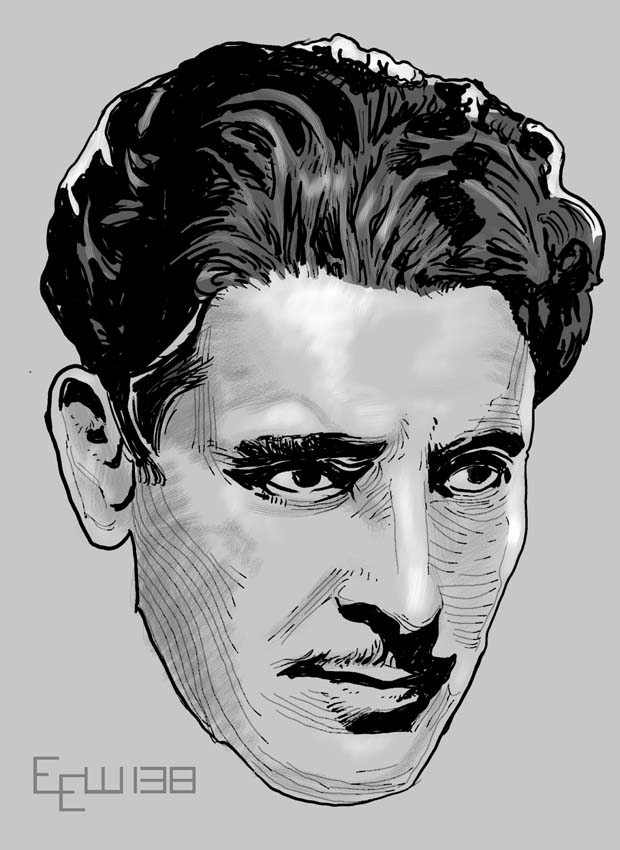Tale of Two Cities – 1935
REVIEW
Tale of Two Cities – 1935

Ronald Colman's role in Tale of Two Cities is that of "wastrel" lawyer Sidney Carton who identifies himself to other people by his personal view of what is his real profession: "I'm a drinking man." He's brilliant with a stupendous memory, but he's usually drunk or hung over, going through life feeding information, legal strategy and what to say to his employer, barrister C.J. Stryver (a blustering Reginald Owen), who then carries it off in court so that Carton can get back to getting smashed.
Though Carton is the main character (and Colman the main actor) of Tale of Two Cities, it takes him 23 minutes to even show up in the story. The complexities of the French Revolution and how it impacts three families takes up all the rest of the screen time, and there's a lot of wheels-within-wheels already spinning by the time Carton becomes engaged with the mounting troubles.
Cruelty, arrogance and bitterness haunts the story derived from Dicken's novel about "it was the best of times, it was the worst of times." The worst of times are the mass executions by guillotine that are featured in the last part of this film. Large-scale, epic scenes* appear in key historical places in the tale, such as a massive crowd surrounding the Bastille, or filling the vast arena-like space where Paris comes to enjoy the daily executions.
By the time the guillotine blades are falling, Carton has had to stop sitting on the fence between his cynicism on one hand and his nihilism on the other, and actually choose a side. In the end it runs out to not be either of those two.
Colman is the star but is not alone at grabbing attention. Actress Blanche Yurka as Madame De Farge is usually highlighted in reviews for a Tale of Two Cities for bringing a hair-raising characterization, and for good reason. If any single character can embody the wounded hatred and crazed homicidal fury of this cinematic revolution, it is Yurka's portrayal of a clever, usually blank-faced woman knitting together a sinister plan while also constantly knitting for real, a physical symbol of what has been happening all the time right before our eyes without quite knowing the extent.
Other actors have shorter showcases. Basil Rathbone is here in another role of lordly arrogance (as Marquis St. Evrémonde) who rides through Paris in his carriage, accidentally runs over a child, and then complains to the shocked peasants that they could've harmed his horses.
A bit later it looks comical as Rathbone sits for his white wig to be properly powdered, bantering with other aristocrats about the annoyance of the starving masses. The Marquis' group are wearing gleaming silken suits that make them look like the height of vanity in this starving city of poor people, but it is also director Jack Conway giving us an image of grotesque stupidity as time is rapidly running out for this class of people in France.
Isabel Jewell (as a young, condemned seamstress) is given key scenes toward the end, and is another example of how well Conway (and writers W.P. Lipscomb and S.N. Behrman) are able to keep a large ensemble of characters distinguishable.
Edna May Oliver also appears as the protective and ultimately dangerous Miss Pross, who saves a life, though she won't be the only one to do so while the whole sad, heroic Tale of Two Cities is told.
*The credits give Val Lewton and Jacques Tournier special mention for making these scenes. About 6 years later the two were together again making Cat People for RKO.
What's Recent
- Grand Exit - 1935
- Island of Desire - 1951
- Road to Morocco
- The Devil and Miss Jones - 1941
- Sinners - 2025
- Something for the Boys - 1944
- The Mark of Zorro - 1940
- The Woman They Almost Lynched - 1953
- The Cat Girl - 1957
- El Vampiro - 1957
- Adventures of Hajji Baba – 1954
- Shanghai Express 1932
- Pandora's Box – 1929
- Diary of A Chambermaid - 1946
- The City Without Jews - 1924
- The Long Haul
- Midnight, 1939
- Hercules Against the Moon Men, 1964
- Send Me No Flowers - 1964
- Raymie - 1964.
- The Hangman 1959
- Kiss Me, Deadly - 1955
- Dracula's Daughter - 1936
- Crossing Delancey - 1988
- The Scavengers – 1959
- Mr. Hobbs Takes A Vacation - 1962
- Jackpot – 2024
- Surf Party - 1964
- Cyclotrode X – 1966
Original page April 2021